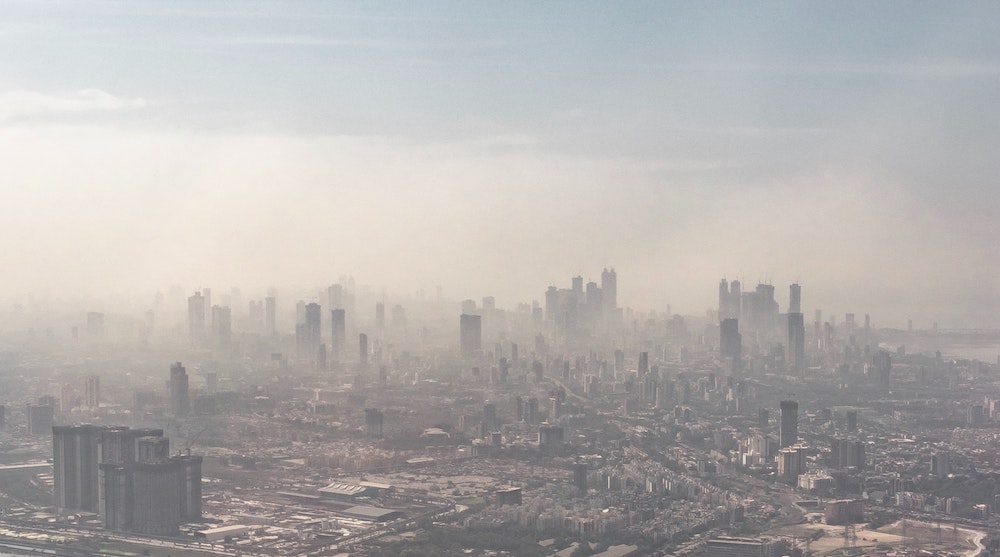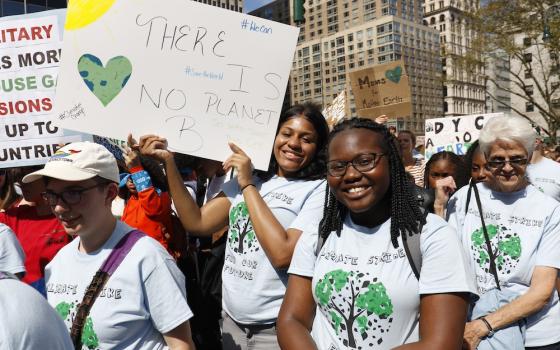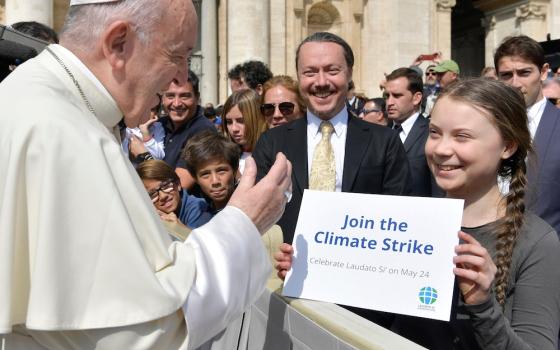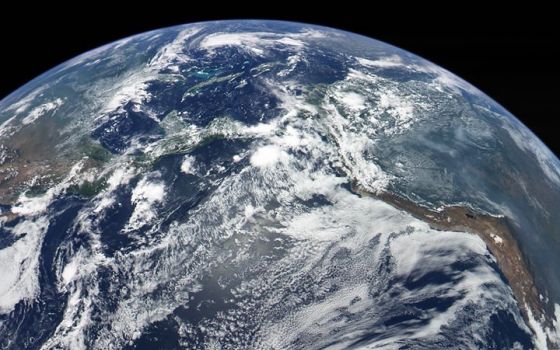
Smog hangs over Mumbai, India. (Abhay Singh/Unsplash)
Editor's note: In his Lenten "Reflections on the Care of Creation," Fr. Emmet Farrell examines our impact on the planet and our responsibility, as people of faith, for our common home. You can sign up here to receive Fr. Farrell's reflections in your inbox every Monday, Wednesday and Friday from Feb. 17 to April 2.
See:
Air quality in South Asian countries — especially northern India, Nepal, Pakistan and Bangladesh — is among the worst in the world, as Berkeley Earth's real-time global air pollution map shows.
Hundreds of millions of people in India alone are exposed to particulate concentrations far exceeding World Health Organization threshold recommendations. Air pollution in the country resulted in 1.67 million deaths in 2019, an average of more than 4,500 a day, which accounted for 17.8% of all deaths. That made India the nation with the highest pollution-related death toll in the world, according to a Boston College study.
Deaths due to indoor air pollution, mainly from cook stoves, have decreased since 1990, but those linked to outdoor pollution, especially vehicle exhaust and coal-fired power plants, have increased, the study found. A study of Delhi in 2019 showed that winds carried pollutants from that city to other regions of the country.
The World Health Organization considers air safe to breathe if there are no more than 25 micrograms of particulates per cubic meter of air, wrote Jo McGowan in Commonweal. In the winter of 2017-18, however, "Delhi choked and gasped air with an average 640 micrograms of particulate matter per cubic meter—and in some parts of the city, it was as high as 860. Delhi's smog crisis was news around the world."
Economic growth is one reason, as more Indians have cars than ever before. Deforestation is another — the government razed the forests on India's plains to create farmland for refugees from Pakistan when the two countries were partitioned.
"Those forests once acted to absorb the pollution of the plains. Now, with the trees gone … all that smoke from burning fields, busy highways, and outdated thermal power plants has nowhere to go in the winter," McGowan wrote. "India's citizens produce an average of one and a half tons of greenhouse gases per person every year; their American counterparts produce almost sixteen tons. The poor are not the problem. The problem is uncontrolled industrial development."
Advertisement
Judge:
Patriarch Bartholomew … has [said]: 'For human beings … to destroy the biological diversity of God’s creation; for human beings to degrade the integrity of the earth by causing changes in its climate, by stripping the earth of its natural forests or destroying its wetlands; for human beings to contaminate the earth’s waters, its land, its air, and its life — these are sins.' For 'to commit a crime against the natural world is a sin against ourselves and a sin against God.' (Laudato Si', 8)
Pope Benedict … urged us to realize that creation is harmed 'where we ourselves have the final word, where everything is simply our property and we use it for ourselves alone. The misuse of creation begins when we no longer recognize any higher instance than ourselves, when we see nothing else but ourselves.' (Laudato Si', 6)
Act:
- Imagine living in a place where your eyes sting or your throat is irritated constantly and makes you cough, and you cannot escape from it.
- Invite an expert from a local environmental health group or other knowledgeable entity to explain about your local air control and quality.
- Inform your friends, parishioners or school about your air quality.






